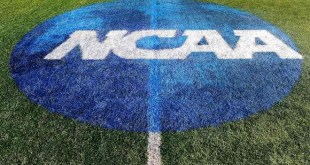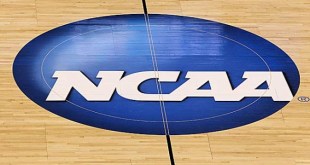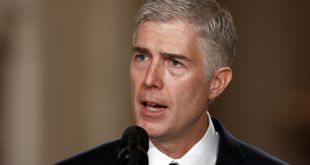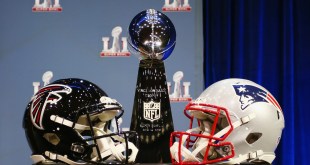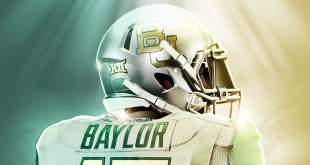Last year, Peter Deppe initiated a challenge to the NCAA’s scholarship limits and transfer rules, after failing to transfer and receive an athletics scholarship at a new school. After attending Northern Illinois (NIU) as a “preferred walk-on,” he was supposed to get a scholarship the next year; however, a coaching change meant this would not come to fruition. While trying to transfer, no school would seemingly take Deppe, and give him a scholarship, as he would not be able to play immediately. This week, the United States District Court for the Southern District of Indiana all but shot down Deppe’s case, once again upholding the NCAA rules in face of the Sherman Act.
The Court granted the NCAA’s Motion to Dismiss one count, alleging that the NCAA’s transfer rules are an unreasonable restraint on trade, thus violating the Sherman Act. The Court noted that this case and a previous case, Pugh v. NCAA, are practically identical in dealing with both the scholarship limits and transfer rules under the Sherman Act. The arguments are more or less the same, the lawyers are the same, the judge was the same, and the plaintiff did not have a good outcome there. It was only three months ago, and the lawyers for Deppe were unable to Jedi mind trick the judge into believing that this case is any different. They tried to explain that the previous reasoning based on case precedent was misapplied to no avail.[i]
Pugh may have even had a better argument, because he had identifiable damages – Division II scholarship did not cover as much – and he was actually enrolled. The NCAA argued that Deppe lacked standing, as the NCAA rules were currently not affecting him. He was not enrolled, he apparently did not show any proof that he was admitted to a school and intending to enroll and play football. Deppe’s response was just that having requested his release from NIU and having eligibility remaining showed the possibility was at least still in play.
One of the three requirements to prove Standing is actual injury, or “a real and immediate threat of future violations of the plaintiff’s rights.”[ii] The Court agrees that he has done nothing to show he is attending a school, that it has football, or that he intends to play, and therefore lacks standing. Their second approach to granting the motion to dismiss is that since he has no standing, and was not enrolled at the time of the complaint, there is no actual case or controversy that would even allow Deppe to seek injunctive relief against the transfer rules. Since he had no standing and there was no actual legal issue at the time, the Court simply does not have the jurisdiction to preside over what doesn’t exist.
Where the Court left one tiny remnant of light to Deppe was denying the NCAA’s motion to strike with respect to the transfer class-action issues. Basically the Court has given 21 days for Deppe to file an amended complaint, and may hear it if it meets certain parameters (the parties agreeing on aspects of discovery and reducing prejudice). The NCAA all but agreed to as much in oral argument, so it would be inappropriate to strike the remaining transfer allegations at this time.
Lessons to be Learned
While amateurism rules are slowly faltering in the face of continued lawsuits, eligibility rules (including those covering transfers) still persistently apply as presumptively procompetitive.[iii] The Court contends that based on Pugh, Agnew, and Board of Regents (a case that the NCAA lost!), eligibility rules continue to help the product of college football, and college sports, exist. Since this case is primarily eligibility-related, no detailed scrutiny under the Sherman Act is required.
This case has not yet gotten to any real merits, not making it past the more basic rules of civil procedure. With Deppe not being enrolled or admitted anywhere[iv] the Court found that the NCAA rules are not currently applying to him, meaning there is no injunctive relief to help him in the face of NCAA rules. Similarly, Pugh’s attempt to challenge the transfer rules were similarly unsuccessful, as he went from Division I to Division II and meeting an exception to compete immediately. This shows that any subsequent case would at minimum require the plaintiff be enrolled in another Division I school that offers football, but unable to play immediately to a rule that is specifically affecting him at the time.[v]
It remains to be seen if Deppe files an amended complaint that allows for the transfer class suit to continue (we should know in about 21 days). The Sherman Act still applies to NCAA rules (as it always has), but unlike amateurism, eligibility still seems to be relatively sacrosanct. Courts have consistently said antitrust law is not the proper vehicle to address issues in college sports (Judges Wilken and Bybee in O’Bannon, Board of Regents, etc), and Judge Pratt does not seem to differ.[vi] The transfer rules remain firmly in place for now, as once again a court has given deferential treatment to the NCAA’s “presumptively procompetitive” eligibility rules.
[i] If you try telling a Court they were wrong on a case without much support, THREE MONTHS after they decided it, you’re probably going to have a bad time. Seriously, who thought this was a good idea?
[ii] Pg. 9. Of the decision.
[iii] This is part of the precedent (from Agnew v. NCAA) that the plaintiff alleged was misapplied in Pugh.
[iv] The latter is a presumption, but as it did not come up in the case, I believe it to be a safe assumption.
[v] There is still the odd catch-22 in any transfer waiver – many schools won’t take a shot on a kid if he/she can’t play immediately, but kids can’t file waiver themselves without going through a school they attend. The obvious answer to this is let kids file waivers themselves with the NCAA, and the obvious rebuttal to this is the utter havoc this would wreak on the NCAA for random waivers that ask for things that just aren’t a thing. So…the catch-22 lives on.
[vi] Insanity: doing the same thing over and over again and expecting different results.
 The Sports Esquires Putting Sports on Trial
The Sports Esquires Putting Sports on Trial
